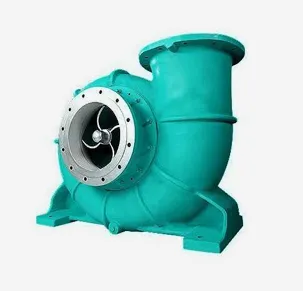Basque
- Afrikaans
- Albanian
- Amharic
- Arabic
- Armenian
- Azerbaijani
- Basque
- Belarusian
- Bengali
- Bosnian
- Bulgarian
- Catalan
- Cebuano
- Corsican
- Croatian
- Czech
- Danish
- Dutch
- English
- Esperanto
- Estonian
- Finnish
- French
- Frisian
- Galician
- Georgian
- German
- Greek
- Gujarati
- Haitian Creole
- hausa
- hawaiian
- Hebrew
- Hindi
- Miao
- Hungarian
- Icelandic
- igbo
- Indonesian
- irish
- Italian
- Japanese
- Javanese
- Kannada
- kazakh
- Khmer
- Rwandese
- Korean
- Kurdish
- Kyrgyz
- Lao
- Latin
- Latvian
- Lithuanian
- Luxembourgish
- Macedonian
- Malgashi
- Malay
- Malayalam
- Maltese
- Maori
- Marathi
- Mongolian
- Myanmar
- Nepali
- Norwegian
- Norwegian
- Occitan
- Pashto
- Persian
- Polish
- Portuguese
- Punjabi
- Romanian
- Russian
- Samoan
- Scottish Gaelic
- Serbian
- Sesotho
- Shona
- Sindhi
- Sinhala
- Slovak
- Slovenian
- Somali
- Spanish
- Sundanese
- Swahili
- Swedish
- Tagalog
- Tajik
- Tamil
- Tatar
- Telugu
- Thai
- Turkish
- Turkmen
- Ukrainian
- Urdu
- Uighur
- Uzbek
- Vietnamese
- Welsh
- Bantu
- Yiddish
- Yoruba
- Zulu
Telephone: +86 13120555503
Email: frank@cypump.com
Aza . 20, 2024 12:49 Back to list
sewage submersible pump
The Importance of Sewage Submersible Pumps
Sewage submersible pumps play a crucial role in modern wastewater management systems. These pumps are specifically designed to handle the transportation of sewage, wastewater, and other types of liquids containing solids. Their unique design allows them to operate while submerged, making them ideal for situations where space is limited or where the fluid requires pumping from underground locations.
Working Mechanism
Submersible pumps are constructed to function efficiently underwater. They are equipped with a hermetically sealed motor that prevents water from entering the unit. When activated, the pump draws sewage from a pit or wet well through an inlet, filtering out solids and debris, and then pushes it through discharge lines to the treatment facility or sewage system. This mechanism is vital in preventing the overflow of wastewater, which can lead to environmental hazards and public health risks.
Applications
Sewage submersible pumps are widely used in a variety of applications. They are commonly found in residential, commercial, and industrial settings. In homes, these pumps are essential for draining basements prone to flooding or for removing wastewater from bathrooms that are below the level of the sewer line. In commercial applications, they serve in municipalities, construction sites, and facilities that require consistent sewage disposal. Industries such as mining and agriculture also utilize these pumps to manage sewage and wastewater effectively.
Advantages
sewage submersible pump

One of the primary advantages of using submersible pumps is their enhanced efficiency. By functioning below the surface of the fluid, they eliminate the need for suction lines, which can limit horsepower requirements and enhance overall performance. Additionally, because these pumps are submerged, they are less susceptible to external conditions, such as harsh weather, reducing maintenance needs and extending their lifespan.
Another benefit is their capacity to handle a wide range of fluid conditions. Sewage submersible pumps can manage not only wastewater but also slurries and thick liquids, making them versatile tools in various industries. They can be designed with different types of impellers to handle specific types of solids, further increasing their adaptability to diverse operational environments.
Environmental Considerations
Sewage submersible pumps also play a vital role in environmental protection. By efficiently transferring sewage and wastewater to treatment facilities, these pumps help prevent contamination of groundwater and natural water bodies. Properly maintained and functioning submersible pumps are essential for preventing sewer overflows, a situation that can have devastating effects on ecosystems and human health.
Conclusion
In summary, sewage submersible pumps are indispensable components of effective wastewater management systems. Their ability to function underwater, efficiency in handling fluids, and adaptability to various applications make them vital for both residential and industrial settings. As urbanization and industrial activities continue to rise, the importance of these pumps will only grow, highlighting the need for regular maintenance and advancements in technology to ensure their reliability and environmental safety. Embracing modern innovations in sewage submersible pump design will ensure that we meet the challenges of wastewater management head-on while protecting our environment for future generations.
-
ISG Series Pipeline Pump - Chi Yuan Pumps | Energy Efficiency&Compact Design
NewsAug.03,2025
-
ISG Series Vertical Pipeline Pump - Chi Yuan Pumps Co., LTD.|High Efficiency, Low Noise, Durable
NewsAug.02,2025
-
ISG Series Vertical Pipeline Pump - Chi Yuan Pumps | High Efficiency, Low Noise
NewsAug.02,2025
-
ISG Series Vertical Pipeline Pump- Chi Yuan Pumps Co., LTD.|High Efficiency&Compact Design
NewsAug.02,2025
-
Heavy-Duty Mining Sludge Pumps - Wear-Resistant Slurry Handling
NewsAug.02,2025
-
Horizontal Split Case Pump with GPT-4 Turbo | High Efficiency
NewsAug.01,2025










